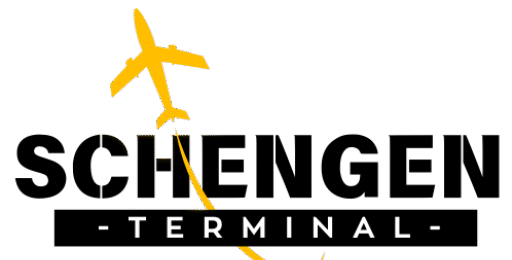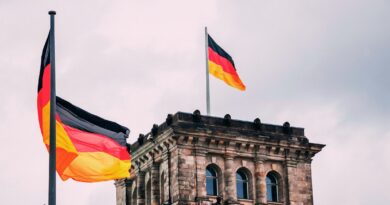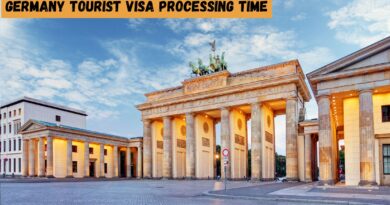Complete Guide to Schengen Visa Financial Requirements
Complete Guide to Schengen Visa Financial Requirements: Bank Statements, Sponsorships & Proof of Funds
Introduction
Applying for a Schengen Visa can be stressful — especially when it comes to financial proof. Every Schengen country wants to ensure that you can afford your trip and won’t overstay or depend on public funds.
In this complete guide, you’ll learn:
-
What financial requirements mean for a Schengen Visa
-
How to prepare bank statements
-
How sponsorship works
-
How much money you actually need
-
Common mistakes and how to avoid rejection
Read Also: Germany Tourist Visa Financial Requirements | Guide for Indians
1. What Do “Financial Requirements” Mean?
When you apply for a Schengen Visa, you must prove that you have enough money to cover all expenses — accommodation, food, travel, and emergencies. This is often called “proof of funds” or “means of subsistence.”
According to Schengen Visa Code rules:
-
Each country decides its own minimum daily amount.
-
You must show funds for your entire stay and your return journey.
-
Financial proof helps the embassy confirm that you are a genuine visitor.
Simply put — you must prove that you can pay for yourself (or show that someone else legally can).
Check Official Europe Site for more Info
2. Bank Statements: Your Main Proof of Funds
2.1 What the Embassy Expects
Most Schengen embassies require bank statements from the last 3 to 6 months. These must:
-
Show your name and account number.
-
Include the bank’s name and logo.
-
Display consistent income and expenses.
-
Be stamped or signed by the bank (not just a screenshot).
2.2 How Much Balance Should You Show?
There’s no single fixed amount for all countries — each sets its own minimum. Below are general guidelines (2025 figures):
-
France: about €65 per day
-
Germany: about €45 per day
-
Spain: about €100 per day
-
Portugal: €75 per entry + €40 per day
Example: If you stay in France for 10 days → €65 × 10 = €650 minimum balance (better to show €800–€1000).
2.3 Common Mistakes to Avoid
-
Large, sudden deposits just before applying.
-
Very little account activity.
-
Using someone else’s account without explanation.
-
Submitting only screenshots without stamps.
Keep your funds steady for at least 2–3 months before applying.
3. Sponsorship: When Someone Else Pays for Your Trip
If you don’t have enough money in your own account, a sponsor (family, friend, or employer) can pay for your trip.
3.1 What is a Sponsorship Letter?
A sponsorship letter is a signed document where someone promises to cover your travel expenses. It should include:
-
Sponsor’s full name, address, and contact details
-
Relationship with the applicant
-
Duration and purpose of your visit
-
Statement confirming they will pay for your trip
-
Date and signature (notarized if required)
3.2 Supporting Documents from the Sponsor
The sponsor must also provide:
-
Their last 3–6 months’ bank statements
-
Salary slips or tax returns
-
Copy of passport or ID card
-
Proof of relationship (birth or marriage certificate if applicable)
3.3 Tips for Sponsorship
-
Make sure your sponsor’s financial profile is strong.
-
Even with a sponsor, you should include your own small bank statement.
-
The sponsor’s documents must be recent and genuine.
4. Country-Specific Minimum Funds
Each Schengen country sets its own rules. Here’s a quick summary of common amounts (approximate 2025 figures):
|
Country |
Minimum Amount per Day |
Notes |
|---|---|---|
|
France |
€65 |
If staying in a hotel |
|
Germany |
€45 |
May vary by region |
|
Spain |
€100 |
Higher requirement |
|
Italy |
€45–€50 |
Depends on stay length |
|
Portugal |
€75 entry + €40/day |
Minimum funds at border |
|
Netherlands |
€55 |
Standard tourist requirement |
Tip: Always check the specific consulate’s website before applying.
To calculate your total funds:
Per Day Amount × Number of Days + €100 buffer for emergencies.
5. Special Cases
5.1 Students
Students often rely on parents or sponsors. They must show:
-
A letter from the sponsor or university
-
Bank statements or scholarship letters
-
Proof that tuition and living expenses are covered
5.2 Unemployed Applicants
If you’re unemployed, show:
-
Savings account with sufficient funds
-
Sponsor documents
-
Assets or property ownership (if any)
5.3 Self-Employed or Business Owners
You’ll need to provide:
-
Business registration certificate
-
Business bank statements
-
Recent tax returns
-
Personal bank account with enough balance
6. Checklist for Financial Proof
Before submitting your Schengen Visa application, prepare:
-
Bank statements (3–6 months)
-
Salary slips or income proof
-
Employment or business documents
-
Sponsor’s financial documents (if applicable)
-
Travel insurance (minimum €30,000 coverage)
-
Flight booking (return ticket preferred)
-
Accommodation proof (hotel or invitation letter)
-
Cover letter explaining how you’ll fund your trip
Having all these increases your approval chances.
7. Tips to Strengthen Your Visa Application
-
Maintain steady funds: Avoid sudden large deposits.
-
Show income flow: Regular salary or business transactions are ideal.
-
Avoid fake or borrowed funds: Embassies can verify bank statements.
-
Prepare a clear cover letter: Explain who pays for what.
-
Provide translations: If your bank statements are not in English.
-
Use personal accounts: Not company or joint accounts unless necessary.
-
Keep extra balance: Always show more than the minimum required.
-
Don’t hide sponsors: Declare sponsorship clearly with documents.
-
Stay consistent: Your financial story should match your travel plan.
-
Double-check embassy requirements: Each country may differ slightly.
8. Common Reasons for Visa Rejection (Financial Grounds)
-
Bank balance below the required minimum
-
Large unexplained deposits
-
Missing or unsigned bank statements
-
Dependence on another person without proof
-
Negative or inconsistent account activity
-
Fake or altered documents
-
Sponsor’s income not sufficient
-
Applicant unable to prove financial ties to home country
Here are detailed information on Common Reasons for Visa Rejection
9. Example Case: Indian Applicant Visiting France for 10 Days
Let’s say an Indian tourist is planning a 10-day trip to France.
-
France requires €65 per day → 10 × €65 = €650.
-
To be safe, show at least €1000 in your account.
Documents to include:
-
3 months of personal bank statements showing €1000+ balance
-
Salary slips and employment letter
-
Hotel and flight bookings
-
Travel insurance with €30,000 coverage
If sponsored by a family member:
-
Sponsor’s bank statements and ID
-
Sponsorship letter
-
Proof of relationship
This setup would easily satisfy financial proof requirements.
10. Final Thoughts
Financial proof is one of the most important parts of your Schengen Visa application.
The embassy isn’t just checking your money — they’re checking your credibility.
Show clear, consistent, and genuine proof of funds. Avoid shortcuts.
Whether you use your own account or a sponsor, make sure every detail matches and is recent.
With the right preparation, financial proof becomes easy — and your chances of Schengen Visa approval increase dramatically.
FAQs
Q1: Can I apply without bank statements?
Only if you have a verified sponsor who provides full financial documents. However, most embassies still require at least your personal account statement.
Q2: How recent should my bank statement be?
Within the last 30 days before your application date.
Q3: Is there a fixed amount I must show?
No, it depends on the country. Most require €45–€100 per day of stay.
Q4: Can I use a credit card statement as proof?
Usually not accepted alone. Provide a normal savings or current account statement.
Q5: Do embassies verify bank statements?
Yes, sometimes they contact banks or check for digital verification codes.
Q6: If I have a sponsor, do I still need my own bank account?
Yes. Even a small balance in your account helps show financial stability.
Q7: What if I receive a large deposit just before applying?
That can look suspicious. Try to maintain funds for at least 2–3 months in advance.




